Owning a horse is a rewarding experience that brings joy, companionship, and a unique bond between animal and owner. However, caring for a horse at home requires responsibility and attention to detail. Horses are large, intelligent animals that need proper care to ensure they remain healthy and happy. For homeowners who are new to horse care or looking to improve their routine, following a simple and effective approach can make a world of difference. This article will provide practical tips for maintaining your horse’s well-being at home while focusing on safety, nutrition, grooming, exercise, and mental health.
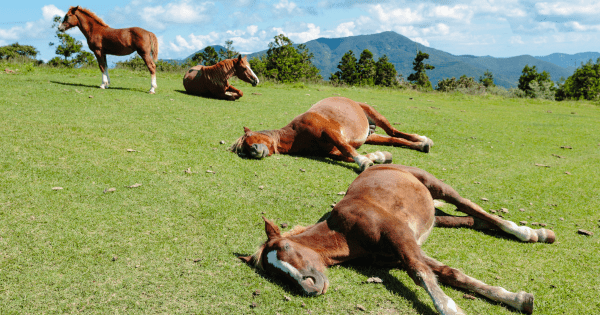
1. Creating a Safe and Comfortable Environment
The first step in caring for your horse is to provide a safe and comfortable living environment. Horses spend a lot of time in their stable or paddock, so these areas should be clean, well-ventilated, and free from hazards.
- Stall and Shelter: Ensure your horse has a stall that is large enough for it to move around comfortably. The stall should have proper drainage to avoid wet or muddy conditions, which can lead to hoof problems. Regularly clean the stall and replace bedding to keep it dry and hygienic.
- Fencing: Your horse’s paddock or turnout area must be securely fenced. Avoid using barbed wire, as it can cause injuries. Check the fencing regularly for any damage that could lead to escapes or accidents.
- Shelter from Weather: Horses need shelter from harsh weather conditions. In the summer, they should have access to shade to avoid overheating, while in the winter, a windbreak or enclosed shelter will help protect them from cold winds and rain.
By maintaining a safe and clean environment, you reduce the risk of injury and ensure your horse has a comfortable place to rest and roam.
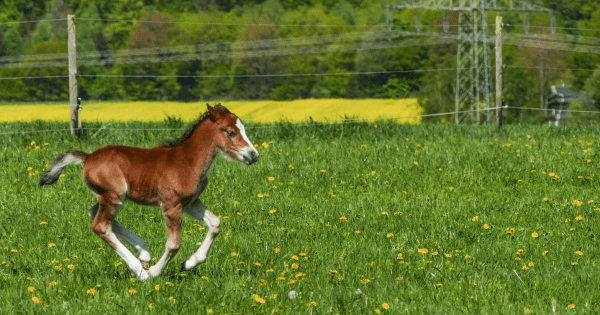
2. Providing a Balanced Diet
A healthy diet is crucial for your horse’s overall well-being. Horses are grazers by nature, meaning they prefer to eat small amounts of food throughout the day rather than large meals.
- Forage: The primary component of a horse’s diet is forage, such as hay or grass. Ensure your horse has access to fresh, high-quality forage throughout the day. The amount will vary based on the horse’s age, weight, and activity level, but a general rule is to provide forage equal to about 1.5-2% of the horse’s body weight.
- Concentrates: In addition to forage, some horses may need grain or other concentrated feeds to meet their nutritional needs, especially if they are working, growing, or have specific dietary requirements. Always consult a veterinarian or equine nutritionist to determine the best type and amount of feed for your horse.
- Water: Fresh, clean water is essential for your horse’s health. Horses can drink anywhere from 5 to 15 gallons of water per day, depending on the weather and activity level. Ensure that your horse has access to water at all times, and clean water troughs or buckets regularly to prevent algae buildup.
- Supplements: Depending on your horse’s specific needs, you may need to provide additional vitamins, minerals, or supplements. Common supplements include salt blocks, joint support, and digestive aids.
Feeding your horse the right diet helps maintain its energy levels, supports healthy growth, and reduces the risk of digestive issues like colic.
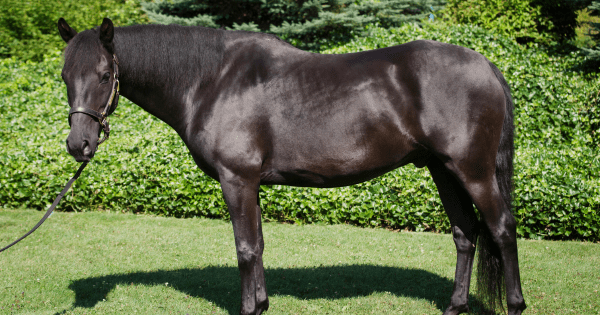
3. Establishing a Grooming Routine
Regular grooming is an essential part of horse care. Not only does grooming help maintain your horse’s coat, skin, and hooves, but it also provides an opportunity to check for injuries, infections, or other health concerns.
- Brushing: Use a curry comb to loosen dirt and hair, followed by a stiff brush to remove debris. This process helps promote healthy skin and encourages circulation. A soft brush can be used on more sensitive areas, such as the face and legs.
- Hoof Care: Check your horse’s hooves daily for any signs of injury, cracks, or lodged debris. Use a hoof pick to clean out dirt and stones, and ensure the hooves remain dry to prevent thrush, a common hoof infection.
- Bathing: Horses don’t need to be bathed frequently, but occasional baths can help remove sweat and grime, especially after heavy exercise. Use a horse-specific shampoo and avoid getting water in the ears or eyes.
- Mane and Tail: Brush your horse’s mane and tail to prevent tangles and keep it looking neat. Regularly trimming the tail can help prevent it from dragging on the ground and getting dirty.
Grooming not only keeps your horse looking its best but also strengthens the bond between you and your animal.
4. Exercise and Physical Activity
Horses are active animals that require regular exercise to stay healthy, both physically and mentally. Depending on your horse’s age, breed, and fitness level, the type and amount of exercise will vary.
- Turnout Time: Ensure your horse has ample time to move freely in a paddock or field. Turnout allows them to stretch their legs, socialize with other horses, and engage in natural behaviors like grazing and playing.
- Riding and Training: Whether you ride for pleasure or compete, incorporating regular riding sessions helps your horse stay in shape. Vary the type of work you do, including walking, trotting, cantering, and even ground training exercises to engage their muscles and mind.
- Lunging: Lunging is a great way to exercise a horse in a controlled manner without riding. It can help build strength and improve balance while giving you an opportunity to assess their movement.
Regular exercise is essential for keeping your horse fit, preventing boredom, and reducing the risk of behavioral issues.
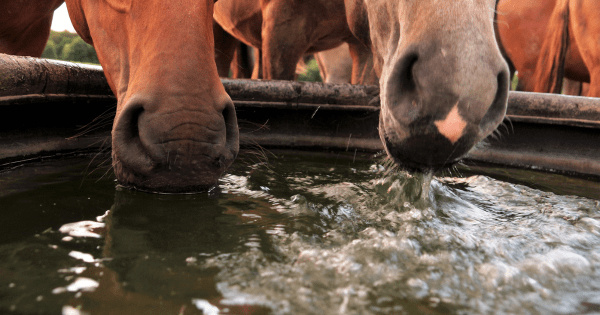
5. Monitoring Your Horse’s Health
Maintaining your horse’s health involves regular monitoring and preventive care. Catching early signs of illness or injury can prevent more severe problems down the road.
- Body Condition: Keep an eye on your horse’s body condition. If you notice significant weight loss or gain, it could be a sign of an underlying health issue or improper diet.
- Vital Signs: Learn how to check your horse’s vital signs, including temperature, heart rate, and respiration rate. Knowing what is normal for your horse will help you recognize any abnormalities.
- Vaccinations and Deworming: Ensure your horse receives regular vaccinations and deworming treatments. Work with your veterinarian to develop a vaccination schedule based on your horse’s risk factors and local disease outbreaks.
- Dental Care: Horses’ teeth continuously grow, and sharp points can develop, making it difficult for them to chew. Schedule regular dental checkups with an equine dentist or veterinarian to prevent dental issues.
Regular veterinary care and observation can help you stay on top of your horse’s health and catch any potential issues early.
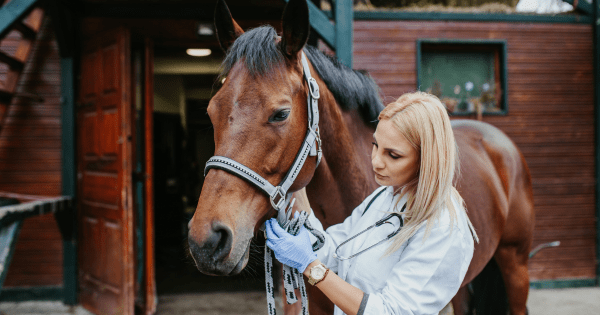
6. Mental Stimulation and Social Interaction
Horses are intelligent and social animals that need mental stimulation to prevent boredom and behavioral issues. A bored horse can develop bad habits like cribbing, weaving, or excessive pacing.
- Socialization: Horses thrive when they have social interactions with other horses. If possible, allow your horse to spend time with other horses in a safe, supervised environment. Social bonds with other horses can reduce stress and promote well-being.
- Toys and Enrichment: Providing toys, such as treat balls or hanging objects, can help keep your horse mentally stimulated. You can also create enrichment activities by hiding treats around their paddock or stable.
- Training and Learning: Engaging your horse in regular training or teaching them new tricks can also provide mental stimulation. Horses enjoy learning, and positive reinforcement methods can strengthen the bond between you and your horse.
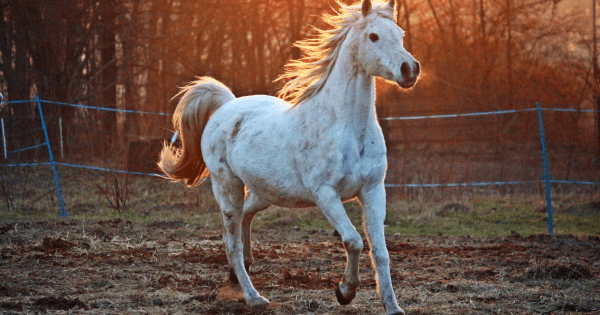
Caring for a horse at home is a fulfilling responsibility that requires attention, patience, and dedication. By creating a safe environment, providing proper nutrition, maintaining a grooming routine, ensuring regular exercise, monitoring health, and offering mental stimulation, you can ensure your horse leads a happy, healthy life. Whether you are new to horse ownership or an experienced horse owner, these simple and effective tips will help you provide the best care for your equine companion.
